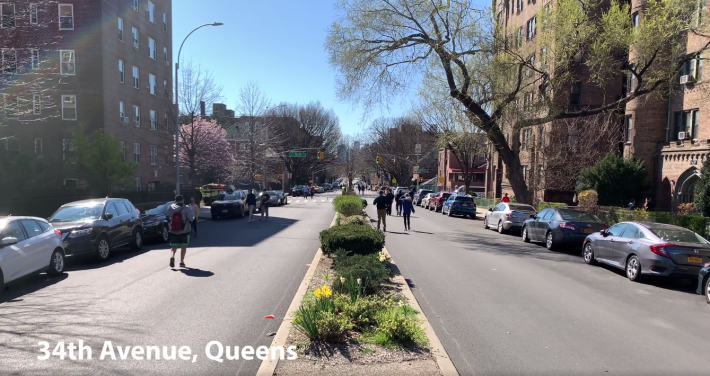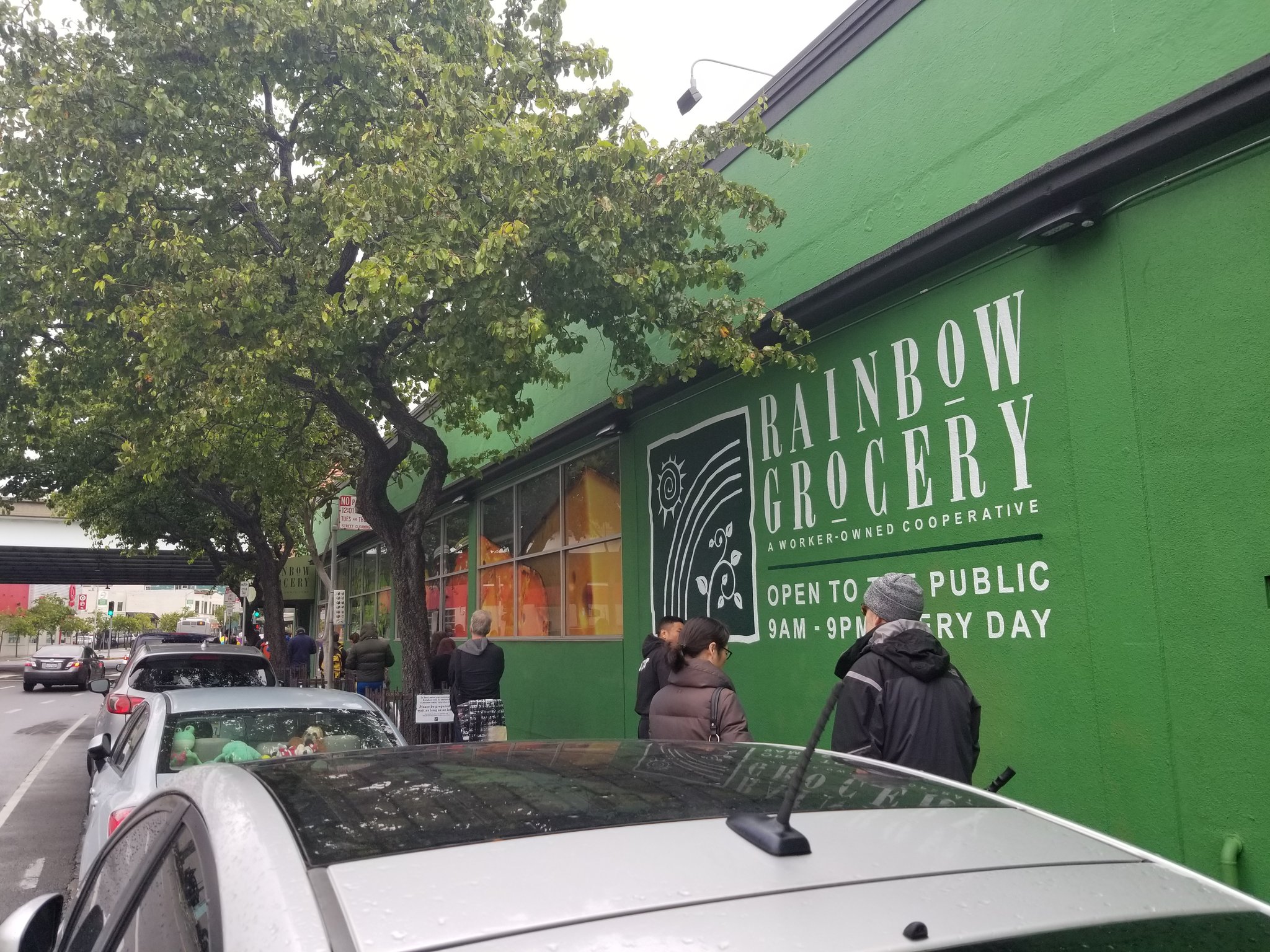Given narrow sidewalks and an urban landscape with the vast majority of space dedicated to cars, it can be challenging to maintain safe spacing to stop the spread of COVID-19. People still want to get outside for exercise and they still have to get food, but a lack of space has made either potentially life threatening, as seen in the lead photo.
That was taken outside the Mission District's Rainbow Grocery, as people waited Saturday for their turn to get some food, crammed onto a narrow sidewalk. Advocate Jason Henderson, who took the pic, elaborates in his tweet below:
Inadequate social distance. Narrow sidewalk without adequate passibility. Private car storage consuming what should be safe spaces in the public streets of San Francisco @jeffreytumlin pic.twitter.com/YQdzJRIXIv
— Jason Henderson (@StreetFightSF) March 28, 2020
This is not a situation unique to the sidewalk outside Rainbow.
As advocate and Streetsblog contributor Patrick Traughber pointed out on social media: "This is also an issue today on Divisadero at Hayes and Divisadero at Fulton. Narrow sidewalks creating a situation where the disease may spread. Removing the car parking or travel lane would solve it."
And this isn't just about San Francisco.
Walk-Bike-Berkeley is pushing its mayor and city council to close the city's bicycle boulevards to through car traffic, to give residents space to get some exercise. "We received a thoughtful, but lukewarm, response from the City Manager (Dee Williams-Ridley)," Walk-Bike-Berkeley's Ben Gerhardstein wrote in an email to members. "The City committed to reminding motorists to control their speed. But, regarding our request to close bicycle boulevards to through motor vehicle traffic, she noted resource and logistical constraints (staff capacity, lack of materials, and the challenge of designing temporary closures that are visible at night and ensure access for emergency vehicles, paratransit, etc.)."
In Oakland, Bike East Bay's Dave Campbell reports that advocates are trying to get the streets around Lake Merritt open for bikes and pedestrians. In an email, his group and others asked the city to "consider coning off part of the streets around Lake Merritt (and perhaps elsewhere in the city) in an attempt to widen sidewalks where there is insufficient space for social distancing given demands."
Streetsblog has a request in to Oakland's Department of Transportation to find out where that stands. Campbell added that advocates want to be sure emergency responders can still do their jobs and that placing barriers doesn't unnecessarily put city workers at risk. "We don't want to create any safety issues," he said.
Meanwhile, back in San Francisco, advocates started a petition last week to take the relatively easy and obvious step of closing JFK drive in Golden Gate Park to car traffic during the epidemic, since the street is now lightly traveled by motorists and the space is badly needed for social distancing while exercising. It's already closed on Sundays, so the logistics are already in place. Over 500 people emailed Mayor Breed and other public officials to support the idea. Unfortunately, "Mayor London Breed and Dr. Grant Colfax, the Director of the SF Department of Public Health, stated that all trips outdoors must be minimized, given the threat of Covid-19. During the conference, Dr. Colfax also stated that closure of JFK Drive to traffic is not happening at this time," wrote Walk San Francisco's Jodie Medeiros in a blog post. "This was incredibly disappointing to hear, and I personally was crushed."
Indeed it is disappointing, that even in such a desperate time Bay Area officials are reluctant to open streets so people can have space to exercise and get outside safely. By contrast, New York, which is currently experiencing a more intense and tragic COVID-19 infection rate than the Bay Area, is closing streets, as seen below:

The above street was closed with a couple of metal gates dropped off at the intersections. If New York can do this on 34th and on other streets, the Bay Area can and should too, at least for the duration of the pandemic. With the shelter-in-place order extended through May 1, people are going to become increasingly desperate for safe spaces, close to home, to go outside for exercise and mental health breaks. And to do that, they need more space.
Philadelphia, Washington, D.C., and other cities are also closing select streets because of the pandemic. For a comprehensive list, check out Streetsblog Chicago's coverage.





